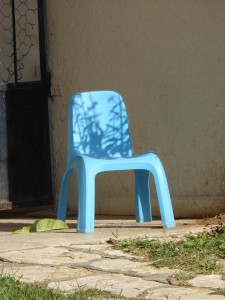When the pandemic began I forgot about this lesson. In fact, the thin binder of “puzzles” that it was placed in it fell out of a drawer and lodged itself behind the drawers.
I’m so glad I found it again.
The students enjoyed it and I was pleased with the vocabulary and syntax reviewed.
Here is the post as it was first posted on Jan. 6 , 2016
_ *_ *_* _
Full disclosure: I’ve never began a post this way before.

There’s no real reason to continue reading this post. Hana Ticha’s lesson “Everyone is a Genius” has everything you could want a lesson to include – vocabulary, grammar, syntax, discussions, general knowledge and FUN! The quote chosen has a such a nice educational message too. So why adapt it? What happened to “If it ain’t broke don’t fix it”? Just go on to Hana’s post!
I had to adapt the lesson because I wanted to use it in my learning center for Deaf and hard of hearing students. Each lesson is for a jumble of 10th, 11th and 12th graders, at all possible levels. This activity is not for all them.
In addition, due to my students’ hearing problems, I would have to write out each clue, as they woudn’t be able to follow the spoken language. That would be cumbersome and time consuming.
In short, I needed a version that students could work on fairly independantly, with me guiding and helping from time to time (and then hopping of to help someone else).

So I typed up the lines for each letter of each word of the quote, so the students would have that information as a hint. I also added the first letter of most of the words (not the grammatical ones). I also wrote clues for about two thirds of the words. Some are very simple clues, others demand more of the student.
Here is the word document (two pages):
I’ve done it with a few students so far. One by one (not in the same lesson). They are all students who enjoy a challenge, students who are curious.
They loved it!
Filling it in led to them asking great questions. The students tried to use “he” instead of “it” for the fish, which led to a review of the difference between “it’s” and “its”. One very deaf student was puzzled by the word in the clue for tree “leaves” which he was positive was only an irregular verb in the past. The whole idea, naturally, of an “f” (leaf) changing to a “v” (leaves) is strange to him. Another student was sure that “everyone” should be plural but could tell that the number of letter spaces didn’t match the word “are” and figured out on her own that the following word must be “is”. The only word they all had trouble figuring out was “if”, even though they got the “will”. Perhaps I shouldn’t have a clue for it, and then it will draw more attention to the conditional form.
The students really enjoyed the detective work! However,they all needed my help in understanding what the point of the quote was. One thought it meant he shouldn’t go off on “wild goose chases” such as looking for fish on trees…
All the students who have done it so far are kind of “loners”, students who don’t always “fit in”, for different reasons. Once they got the point of the quote, they really approved!